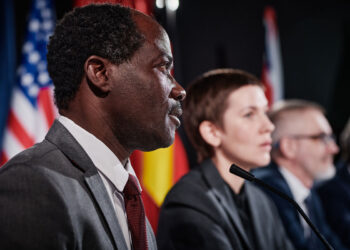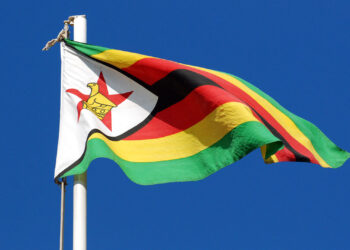Creating a safe space for LGBTIQ journalists in African media is not only a matter of human rights and equality but also a crucial step towards fostering a more inclusive, diverse, and informed society.
The need for such an environment is underscored by the persistent discrimination and violence faced by LGBTIQ individuals across many African countries, where homosexuality is still criminalized in several jurisdictions, and societal attitudes remain largely hostile.
Human Rights and Equality
At the heart of the argument for creating a safe space for LGBTIQ journalists is the principle of human rights.
Every individual, regardless of their sexual orientation or gender identity, has the right to work in an environment free from discrimination, harassment, and violence. Ensuring that LGBTIQ journalists can work safely and openly is a fundamental aspect of respecting their human rights.
In many African countries, the legal and social frameworks often fail to protect these rights, leading to a significant risk of physical harm, psychological stress, and professional marginalization for LGBTIQ individuals.
Establishing safe spaces within the media industry can be a significant step towards rectifying these injustices and promoting equality.
Promoting Diversity and Inclusion
Diversity in the media is essential for a robust and healthy democracy. The inclusion of LGBTIQ voices in journalism enriches the media landscape by providing diverse perspectives and narratives that might otherwise be overlooked or misrepresented.
LGBTIQ journalists bring unique insights and experiences that can contribute to more comprehensive and nuanced reporting. By creating a safe space for these journalists, African media organizations can ensure that their coverage is reflective of the diverse society they serve.
This inclusivity not only enhances the quality of journalism but also fosters a culture of empathy and understanding within the broader community.
Combatting Stereotypes and Prejudice
The media plays a powerful role in shaping public opinion and social norms. When LGBTIQ journalists are empowered to tell their stories and report on issues affecting their communities, they help challenge harmful stereotypes and prejudices.
In most African countries, negative attitudes towards LGBTIQ individuals are perpetuated by misinformation and a lack of representation in the media. By giving LGBTIQ journalists a platform to share their experiences and perspectives, media organizations can help educate the public and promote a more accurate and positive understanding of LGBTIQ identities. This, in turn, can contribute to greater societal acceptance and the dismantling of deeply ingrained biases.
Enhancing Journalistic Integrity and Credibility
Journalism is rooted in the pursuit of truth and the representation of all facets of society. Excluding LGBTIQ voices from the media compromises journalistic integrity and limits the scope of coverage.
When LGBTIQ journalists can work without fear of discrimination, they can investigate and report on issues pertinent to their communities with greater depth and authenticity.
This not only strengthens the credibility of the media outlet but also builds trust with audiences who value fair and inclusive reporting. In an era where misinformation is rampant, ensuring diverse representation in journalism is more critical than ever for maintaining the public’s trust in the media.
Legal and Institutional Support
To create a safe space for LGBTIQ journalists, African media organizations must advocate for and implement supportive policies and practices.
This includes robust anti-discrimination policies, training programs to educate staff on LGBTIQ issues, and the establishment of clear reporting mechanisms for incidents of harassment or discrimination.
Additionally, media organizations can play a pivotal role in advocating for broader legal protections for LGBTIQ individuals, both within their own countries and across the continent. By leveraging their influence, media outlets can push for legislative changes that safeguard the rights of LGBTIQ people and foster a more inclusive society.
Psychological and Emotional Well-being
Working in an environment that is hostile or indifferent to one’s identity can take a significant toll on mental health. LGBTIQ journalists often face unique stressors, including fear of outings, harassment, and exclusion.
Creating a safe space in the workplace can alleviate some of these pressures, allowing journalists to focus on their work and contribute more effectively to their organizations.
Supportive environments also promote better mental health and job satisfaction, leading to higher retention rates and a more motivated workforce.
Ensuring the well-being of all employees, including LGBTIQ individuals, is not only an ethical responsibility but also a practical one for media organizations aiming for excellence.
Creating a safe space for LGBTIQ journalists in African media is a multifaceted imperative that encompasses human rights, journalistic integrity, diversity, and social progress.
By fostering an inclusive and supportive environment, media organizations can enhance their reporting, challenge societal prejudices, and contribute to a more just and equitable world.
African media need to recognize the importance of this issue and take proactive steps to ensure that all journalists, regardless of their sexual orientation or gender identity, can work without fear and with the full respect and dignity they deserve.
Discover more from Newswire
Subscribe to get the latest posts sent to your email.







